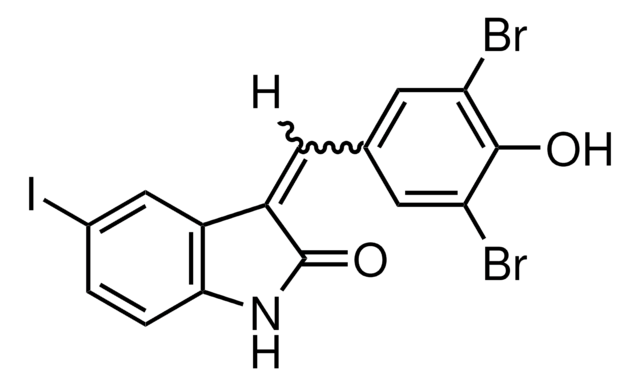30050
Cystamine dihydrochloride
purum, ≥98.0% (AT)
Synonym(s):
2,2′-Diaminodiethyl disulfide dihydrochloride, 2,2′-Dithiobis(ethylamine) dihydrochloride, Decarboxycystine dihydrochloride
About This Item
Recommended Products
grade
purum
Quality Level
Assay
≥98.0% (AT)
form
powder
mp
217-220 °C (dec.) (lit.)
~220 °C (dec.)
solubility
water: soluble 1 g/10 mL, clear, colorless
SMILES string
Cl[H].Cl[H].NCCSSCCN
InChI
1S/C4H12N2S2.2ClH/c5-1-3-7-8-4-2-6;;/h1-6H2;2*1H
InChI key
YUFRRMZSSPQMOS-UHFFFAOYSA-N
Looking for similar products? Visit Product Comparison Guide
Related Categories
Application
- as sulfhydryl modifying reagent
- in synthesis of monoclonal anti-prostate-specific membrane antigen antibody and A9 RNA aptamers-conjugated popcorn shape gold nanoparticles
- as internal standard in determination of total homocysteine
- in modification of gold nanorod surface by amine groups
Other Notes
related product
Signal Word
Warning
Hazard Statements
Hazard Classifications
Acute Tox. 4 Oral
Storage Class Code
11 - Combustible Solids
WGK
WGK 3
Flash Point(F)
Not applicable
Flash Point(C)
Not applicable
Personal Protective Equipment
Choose from one of the most recent versions:
Already Own This Product?
Find documentation for the products that you have recently purchased in the Document Library.
Customers Also Viewed
Our team of scientists has experience in all areas of research including Life Science, Material Science, Chemical Synthesis, Chromatography, Analytical and many others.
Contact Technical Service







